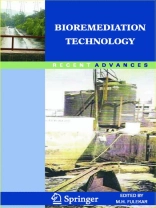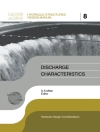Environmental pollutants have become a major global concern. The modern growth of industrialization, urbanization, modern agricultural development and energy generation have resulted in indiscriminate exploitation of natural resources for fulfilling the human desires and needs, which have contributed in disturbing the ecological balance on which the quality of environment depends. The modern technological advancements in chemical processes/operations have been raised to new products and also new pollutants in abundant level which are above the self cleaning capacity of the environment. One of the major issues in present times is the threat to human lives, due to the progressive deterioration of the environment.
This book discusses bioremediation technology-based remediation to restore contaminated sites and protect the environment. It studies the opportunities for more efficient biological processes in molecular biology and ecology. Notable accomplishments of these studies include the cleaning up of polluted water and contaminated land. The book includes invited papers by eminent contributors who provide cost-effective bioremediation strategies to immobilize contaminants for cleanup of environment. The book is directed towards postgraduate students in biotechnology/life sciences/environmental sciences/biosciences and researchers in universities and research institutes and industries.
Mục lục
Global Status of Environmental Pollution and Its Remediation Strategies.- Bioremediation of Xenobiotics-contaminated Sites: Concept and Selected Case Studies.- Biosorption in Environmental Remediation.- Lignins and Polyphenols in Bioremediation.- Bioremediation Technology for Hazardous Wastes – Recent Advances.- Biodegradation Technology for Pesticide Toxicity Elimination.- Genomics Approach to Bioremediation.- Recombinant DNA Technology for Bioremediation of Pollutants.- Bioaccumulation and Biotransformation of Heavy Metals.- Reclamation and Remediation of Solid Waste through Bio-chemical Process.- Phytoremediation of Low Level Nuclear Waste.- Improving Plants for Zinc Acquisition.- Environmental Nanotechnology: Nanoparticles for Bioremediation of Toxic Pollutants.












